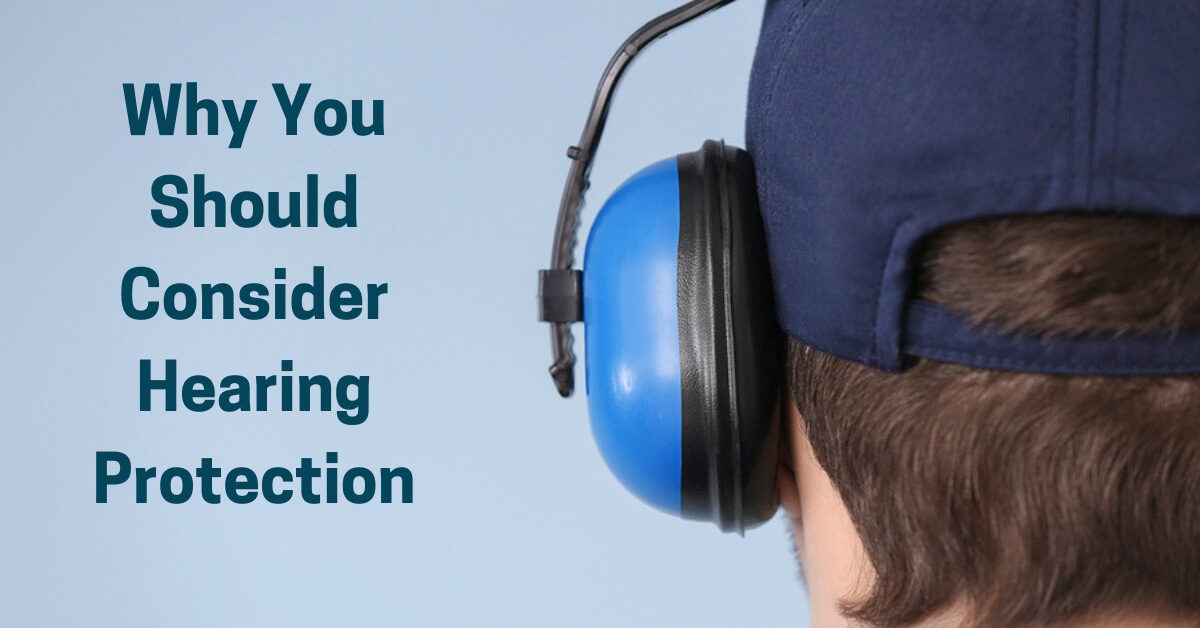- As an Invisible Condition, Hearing Loss Often Goes Ignored - October 17, 2022
- All About Assistive Listening Devices & More - October 1, 2022
- Tired of Loud Restaurants? Time for a Hearing Test! - September 17, 2022
Hearing protection isn’t just for people working with heavy machinery. In today’s noisy world, hearing protection can help you preserve your hearing even when you are surrounded by noise. Most hearing loss develops directly as a result from noise exposure, with damage done to our auditory system accumulating over time until significant hearing loss makes comprehending sound and speech challenging.
Most Hearing Loss Is Permanent
Your hearing is precious – once you lose it, it cannot be restored, so it’s important to protect your hearing from harm throughout your life. Noise related hearing loss occurs in the inner ear when loud sounds push the ear’s delicate hair cells to their breaking point. Hair cells are the sensory nerves in the ear that are activated by sound waves in the air. They are responsible for converting the sound wave into an electrical signal sent to the brain. The brain processes the signals sent from the inner ear and “hears” the sound.
Hair cells are critical to how our hearing functions, but they are also a limited resource in the body. We are born with the only hair cells we will ever have, and if any are damaged they have no method of repairing themselves. When loud noises stretch a hair cell’s functioning to the limit, damage can be done that will never be able to be repaired.
When Is a Noise Too Loud?
Take note of the sound that surrounds you every day. If the environmental noise allows you to speak and understand others at a comfortable speaking volume, you don’t need to be using hearing protection. However, if you have to raise your voice to be heard, that means your surrounding environment is too loud and may be doing damage to your hearing.
Do you want a more in-depth analysis of the sound in your surroundings? Consider installing a decibel meter application on your smartphone or mobile device. Free apps like DecibelX can read the ambient sound and give you an immediate indicator of whether you are being exposed to hazardous noise. Any reading above 85 dB means that hearing protection should be worn.
Hazardous Noise Thresholds
Noise that can endanger your hearing when it is too loud. The louder the noise, the faster it makes a permanent mark on your hearing. While we can withstand 85 dB of sound for 8 hours before our hearing sustains damage, at 95 dB injury to our hearing happens after only an hour. At 105 dB, about the volume of a live rock concert, sound is only safe for fifteen minutes. When you get to volumes around 120 dB loud noise causes immediate, permanent harm to our hearing, contributing to hearing loss.
Protect Yourself
Carrying hearing protection with you and using it around loud sounds is a great way to help preserve your hearing. Earplugs and earmuffs that are designed to protect you against loud noise will have a number rating called the NRR. The higher the NRR rating, the more protection it offers. The highest rating for earmuffs is 31 NRR and for earplugs it is 33 NRR.
You can use the NRR rating to determine how much hearing protection is offered. To determine how much sound will be dampened, subtract 7 from the NRR number and divide by 2. For instance, earplugs rated at 33 NRR will dampen sound by 13 dB. If you are using two forms of hearing protection in conjunction with each other this add approximately 5 dB of protection to the NRR rating of your earplugs.
Even 10 dB of hearing protection can make a sound safer for your hearing. Reducing 95 dB to 85 dB increases the safe exposure time seven hours! If you are around very loud noises frequently, such as jet engines, fireworks or guns, hearing protection is absolutely essential to preserving your hearing.
Your Hearing Health
Protecting your hearing is critical to keeping it healthy. At Encore Hearing, we can help you maintain lifelong healthy hearing. Although hearing loss can’t be reversed, most hearing loss can be effectively managed with hearing aids. Whether you are looking for ways to protect your hearing, or solutions to hearing loss, Encore Hearing can help. Contact us today for an appointment, and get on the path to hearing wellness.

